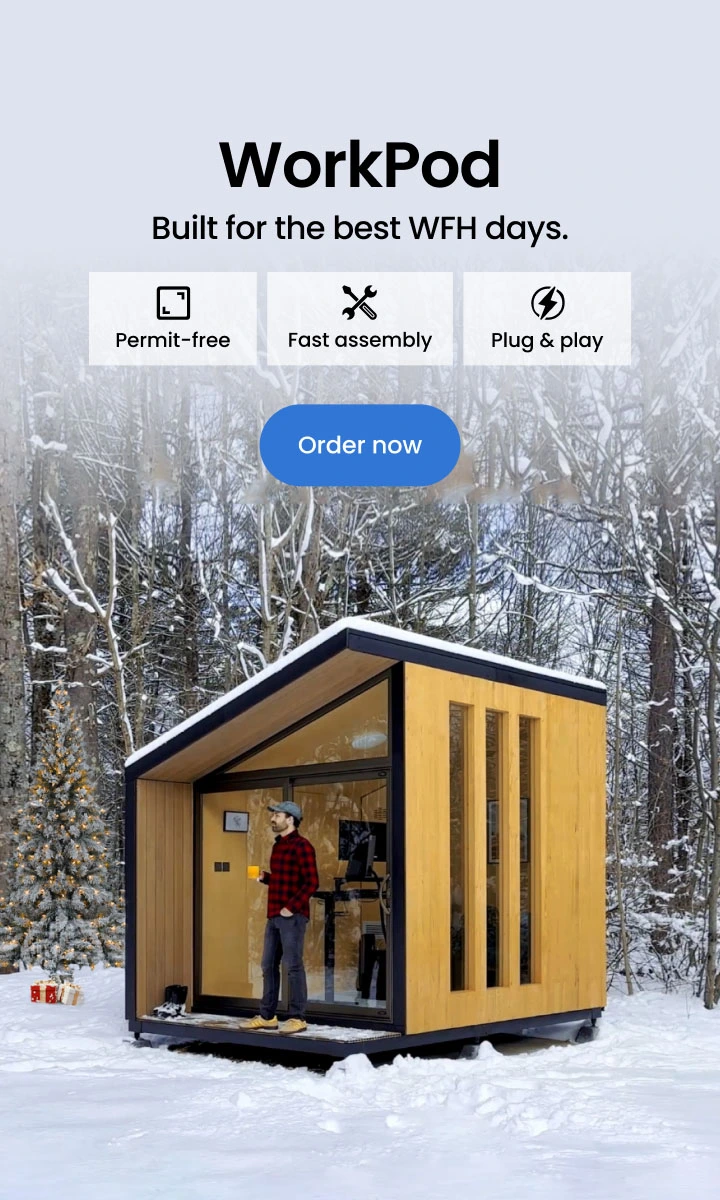
A Guide on Building an Accessory Dwelling Unit in D.C.
Table of Contents
With housing prices continuing to rise and no expectation of them coming down, many homeowners in D.C. are exploring ways of maximizing their existing properties. And one of the most promising and practical options is the construction of ADU apartments in D.C.
ADUs, or Accessory Dwelling Units, are self-contained, independent residences that exist on the same property as an existing house and allow people to create new properties they can rent out or give to their loved ones without having to own new property. That being said, as good as they sound, the construction and legal process of building and operating an ADU anywhere is subject to many complex rules and requirements. And if you don't plan your venture well enough, an ADU might cost you more than it would earn you back.
This is why this guide will walk you through all of the legal requirements you will have to meet before you can construct an affordable dwelling unit in D.C., as well as different design and financing considerations you may want to keep in mind. We’ll also talk about government-led programs that will bring the cost of such ventures down by a huge margin for those who qualify. So let’s read on to find out!
Types of ADUs to Know
ADU apartments in D.C. offer a unique property transformation opportunity. ADUs are more than additional living spaces; they're versatile investments for both lifestyle and income.
Within the city's space-conscious landscape, the D.C ADU program stands out. It lets you accommodate family, generate income, or expand your living space. ADU units in Washington D.C hold promise as flexible, value-enhancing additions.
There are four main types of ADUs allowed in D.C.
- Conversion ADUs: These ADUs are created by converting an existing space, such as a basement, attic, or garage, into a separate living unit. Conversion ADUs are often the most affordable and easiest type of ADU to build.
- Attached ADUs: These ADUs are built onto the main house. They can be located above the garage, in the basement, or as a separate addition. Attached ADUs offer the convenience of being connected to the main house, but they can be more expensive to build than conversion ADUs.
- Detached ADUs: These ADUs are freestanding structures that are built on the same property as the main house. Detached ADUs offer the most privacy and independence, but they can also be the most expensive type of ADU to build.
- Junior ADUs (JADUs): These ADUs are a special type of conversion ADU that is smaller and more restrictive than other types of ADUs. JADUs must be less than 500 square feet and can only have one bedroom and one bathroom. JADUs are a good option for homeowners who are looking for a more affordable ADU option or who have limited space on their property.
How Do Affordable Dwelling Units Work?
As mentioned earlier, ADUs, also known as Guest Houses, Granny Pods, and Living-Sheds, are independent residences constructed alongside the main building on a property. What this means is that the tenants there have all the comforts of having their own residence, including privacy, amenities, and everything in between, all the while being of minimal cost and effort to the landowner.
But besides these basic facts, a lot can vary between different ADU projects. For one thing, while in some areas you might be able to build an entire, multi-story residence that is a house in all things but name, in others, due to building laws, you might be limited to a one-story, tiny cabin-style living pod.
This is why the market offers many such cabins based on your requirements and budget. You can always construct a backyard guest house with a separate foundation, as we just mentioned, but you can also get yourself a prefab guest house, which comes with all its parts already manufactured and is thus much quicker and easier to construct.
Or, if you go for the really future-proofed option, you can enter the world of modular ADUs, which are not only pre-fab but are cheaper, more versatile, and far more expandable in the future as you put in more money.
And all of these can serve different uses, from renting out on things like Airbnb to acting as an entire home office for others or a place for your grandparents or other relatives to live without obstructing your life.
ADU Requirements in the District of Columbia
All of the benefits and kinds of ADUs sound great and everything, but they are only useful if you can construct them in the first place. So let's talk about all the hurdles one has to cross to construct a D.C. accessory dwelling unit.
Before we get into the details, we'd like to remind you that while the following requirements are up-to-date and applicable in most areas, the requirements and laws surrounding ADUs in D.C. are subject to change over time and may differ slightly for some special zones.
When considering such a project, we recommend that you consult your local homeowner's organization and contractors to be up to date on your area's particular requirements. That being said, let's get into the affordable dwelling units in D.C. list:
- Zoning requirements: For the most part, ADUs are allowed in almost all of D.C.'s residential zones, with the exception of R-1-A and R-2 zones.
- Size limitations: Since ADUs are usually constructed in backyards, the state states that their maximum size is limited to 30% of the required rear yard area or 450 square feet; whichever is greater, they also cannot be greater than 35% of the primary building's square footage.
- Occupancy: Unlike some states, in DC, ADUs can be used for rental purposes, given that the landowner resides in either the ADU or the main property, which also means it is also possible for the landowner to take up residence in the ADU while renting out the main property for a ton of extra cash. The district also calls for all ADUs to have their independent entrance that opens on the main road.
- Codes: Besides all of these, the accessory dwelling must meet all the local building codes for safety, ventilation, plumbing, electricity, and any others, if applicable.
- Permits: If the building meets all the above requirements, then all you need to construct is a handful of permits for zoning, building, and electrical work, depending on the project from the district's Department of Consumer and Regulatory Affairs (DCRA).
Different Ways to Build an ADU in D.C.
As mentioned in the beginning, the forms that ADUs can take are practically endless. That being said, depending on which fancy guest house plans you choose, you will have to go to different contractors.
The most obvious choice is the local ADU contractors, but you can also go for prefabricated small house kits to save time and money. There are even shed house ideas that don't even require the digging of a full foundation and can be erected within a week.
All in all, our top 3 list of ADU construction methods/contractors would be:
- Prefab modular construction companies like Autonomous ADUs.
- Single-unit cabins from places like Amazon.
- Local contractors like CARNEMARK design + build in Bethesda and Michael Nash Design Build & Homes in Fairfax paired with your own shed house ideas.
Bonus: The ADU Program in D.C.
While ADUs are not inherently costly, undertaking such a project is not for everyone. But due to increasing demand and ever-more expensive real estate, the Department of Housing and Community Development of the District of Columbia has actually initiated an easy Affordable Dwelling Units Program for homeowners.
This project will focus on low to medium-income homes and will help them by providing financial incentives like low-interest loans and tax reductions, given that they meet all the legal requirements. And you can contact the Department for more information today.
Top 3 ADU Builders in D.C.
There are loads of ADU builders in D.C area but here are the 3 best ones that will serve you the best:
1. Autonomous ADUs
Autonomous ADUs is an expert in prefabricated and modular ADUs that may be placed almost anywhere. They offer the adaptable WorkPod, the roomy WorkPod Versatile, and the little WorkPod mini. These ADUs are expertly constructed to provide a comfortable and practical living area that may be used as a home office, a warm guest house, a private home gym, or a tranquil artist studio.
Advantages of Choosing Autonomous ADUs
- Affordability: In comparison to traditional ADUs, Autonomous ADUs offer a cost-effective alternative. Their prefab ADUs are priced from $14,900 to $18,900, depending on size and features, making quality living space more accessible.
- Quality Materials: Autonomous ADUs prioritize durability. Their structures are built from sturdy and waterproof materials, including steel, wood, and glass. These ADUs are not only robust but also sound-insulated, well-ventilated, and equipped with efficient heating and cooling systems.
- Hassle-Free Installation: Constructing your ADU is a breeze with Autonomous ADUs. They provide a comprehensive package complete with a detailed instruction manual, along with all the essential tools and hardware(meanwhile fulfilling D.C. ADU requirements). You can set up your ADU in as little as eight hours, whether you choose to do it yourself or enlist professional assistance.
2. Four Brothers Design + Build
Four Brothers Design + Build offers a comprehensive suite of services, encompassing everything from the initial design phase to construction and interior design. Their commitment to excellence ensures that every aspect of your ADU project is executed with precision and care.
Advantages of Choosing Four Brothers Design + Build
- Full-Service Expertise: As a full-service design and build firm, Four Brothers Design + Build can manage the entire ADU building process from conception to completion. This streamlined approach is particularly advantageous for homeowners seeking a one-stop solution for their ADU project.
- Dedication to Customer Satisfaction: Four Brothers Design + Build places a strong emphasis on customer satisfaction. Throughout the ADU building journey, they maintain open communication with clients, ensuring that their vision is realized to their utmost satisfaction.
- Exceptional Workmanship: The firm is committed to using high-quality materials and construction methods, resulting in ADUs that are not only durable but also functional and aesthetically pleasing. Your ADU will stand as a testament to their commitment to excellence.
3. Courthouse Design/Build
With a proven track record in remodeling and renovating homes, Courthouse Design/Build boasts a team of seasoned and licensed professionals. Their extensive experience equips them to tackle a wide range of ADU projects, ensuring quality and precision in every phase, from initial design to final construction.
Advantages of Choosing Courthouse Design/Build
- Free Consultation: Courthouse Design/Build offers a complimentary consultation to kickstart your ADU project. This initial discussion allows you to explore your ideas, ask questions, and gain valuable insights from their experts, setting the stage for a successful collaboration.
- Detailed Estimates: Transparency is a hallmark of their approach. Courthouse Design/Build provides detailed estimates for your ADU project, ensuring you have a clear understanding of the scope and cost involved. This empowers you to make informed decisions.
- A Proven Portfolio: The company proudly showcases a portfolio of successful ADU projects on its website. This portfolio serves as a testament to their craftsmanship and ability to bring client's visions to life. It's a valuable resource for inspiration and a glimpse into the caliber of their work.
Bottom Line
As the market continues to be unstable, it is apparent that it will become more difficult to survive without the right real estate decisions. ADUs provide a practical, affordable, and quality solution to that problem and might be the right option for you.
The District of Columbia allows homeowners to construct ADUs on their properties in order to increase their home's value, create revenue, or provide living space for family members. Finding a reliable contractor can make the construction process easy and stress-free.
If you want to build an accessory dwelling unit in D.C, you should look into your alternatives and choose a contractor that has expertise and a solid reputation in the field. Also make sure the contractor is familiar with the ADU D.C. qualifications. All 3 ADU construction companies mentioned in this article are reliable and knowledgeable. Get in touch with these contractors for a consultation and quote to get started. They can advise you on what kind of ADU will work best on your land and give you a comprehensive plan and schedule.
Sag es weiter
.svg)







